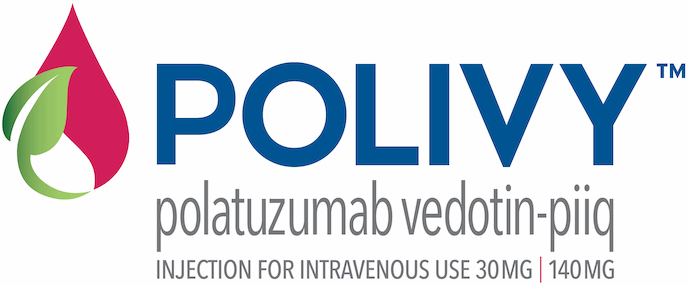What is POLIVY?
POLIVY (polatuzumab vedotin-piiq) is an FDA-approved treatment for adults with relapsed or refractory (R/R) diffuse large B-cell lymphoma (DLBCL) who have already received at least 2 prior therapies. It is used in combination with 2 other cancer treatments: bendamustine and a rituximab product (BR). The full treatment regimen is usually referred to as POLIVY+BR (pronounced “bee-AR”).
Is POLIVY right for me?
POLIVY is a type of medicine called an antibody-drug conjugate, or ADC. POLIVY is designed to work differently from traditional chemotherapies because it has the ability to find dividing B cells, including cancerous B cells.
Almost all B cells (including cancerous ones) have a marker on their surface called CD79b. POLIVY works by finding and attaching to B cells using the CD79b marker.

Illustration of an antibody-drug conjugate (ADC)
*Antibodies are also produced naturally by the body. They are a type of protein that acts as a natural defense system against disease.
